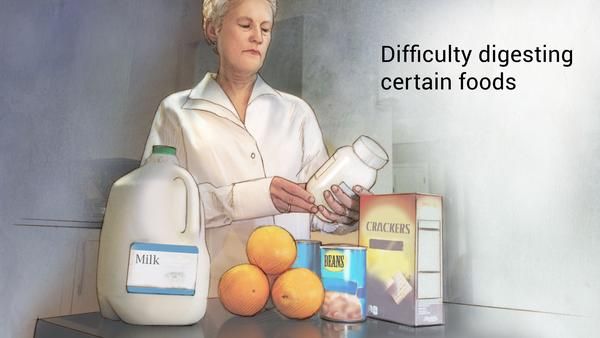Food Intolerance: Causes And Types
Jun 11, 2019 • 23 views
We all know that food is metabolized in the body ultimately to produce energy. The metabolism is very precise and requires specific conditions, pH, enzyme and their cofactors. Sometimes, few people may lack certain enzymes and conditions which lead to allergic reactions as a result. This particular phenomenon when a particular food is indigestible by a person and causes certain allergic reactions in the body is termed as food intolerance. People with food intolerance can lead a normal like by preventing the intake of the allergy causing food in any form. Food intolerance can be of many types depending upon the individual but the most prevalent food intolerances are discussed below.

Lactose intolerance
This is very common intolerance and affects mostly adults. It is because the body is unable to digest Lactose (milk sugar) because of low or zero levels of Lactase enzyme. It is different from milk allergy. People with lactose intolerance usually experience flatulence, bloating, diarrhea, discomfort, infantile colic after milk intake. It can be treated by intake of low lactose in the diet or intake of curd or yoghurt in small amounts.
Gluten intole
Gluten intolerance is caused when the person is allergic to or can’t digest a food product which has gluten protein in it. Cereals like wheat have gluten which is basically the binding agent. It is not well established if it is genetic or acquired problem of the immune system. People with this intolerance usually experience nausea, abdominal pain, bloating etc. other problems outside the GIT may even include joint pain, foggy mind, depression, anxiety and lack of wellbeing. It has no clinical examination and the only treatment to this is excluding any gluten in the diet. Proper substitutes are incorporated in the diet to prevent any energy deficiency.
Histamine intolerance
Histamine is a biogenic amine and it occurs naturally in certain foods. Allergy arises due to the lack of ability to break down histamine which causes allergic reactions in the body. The general symptoms include headaches, runny nose, rashes, vomiting, and diarrhea which can be seen after half an hour of intake. Individuals with this intolerance should consult a good dietitian and avoid histamine rich food for a month. The foods rich in histamine are cheese and wine.
Don’t worry if you have any of these allergies because there is a solution for every problem. Have a scientific approach and consult a dietitian and follow the diet pattern strictly. That is how you can help yourself in the best way!
